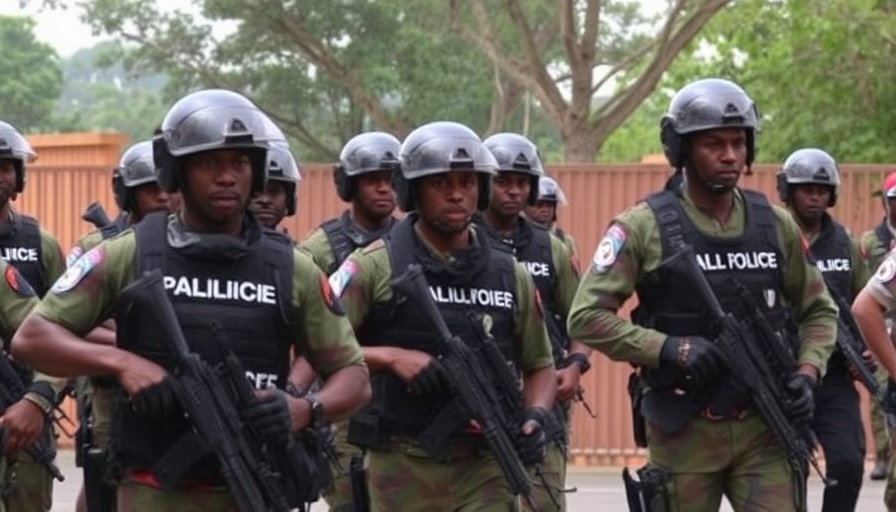
Zimbabwe's Social Tensions Escalate Amid Government Crackdown
In the ongoing struggle for political power and citizen rights, Zimbabwe finds itself once again at a critical juncture. As major cities like Harare and Bulawayo go into lockdown, the presence of anti-riot police highlights the government's intention to suppress dissent in the face of planned protests calling for President Emmerson Mnangagwa's resignation. The move comes as a faction of Mnangagwa's own Zanu PF party pushes back against an extension of his rule, indicating deepening fissures within the ruling party, and raising questions about the future of governance in Zimbabwe.
The Role of Internal Conflicts in Zimbabwe's Political Landscape
Historical context plays a crucial role in understanding the current events unfolding in Zimbabwe. The country is no stranger to political unrest; however, the recent uproar stems not only from public dissatisfaction but also from a fracture within Mnangagwa's ruling party. With Blessed Geza—a once senior member and liberation war veteran—calling for an uprising against alleged corruption, it becomes evident that dissent is not just coming from the streets but also from within the government, reflecting broader uncertainties regarding governance.
Are Protests the Answer? The Delicate Balance Between Order and Dissent
The government’s crackdown on protests raises profound questions about the balance between maintaining order and fostering a space for legitimate dissent. Home Affairs Minister Kazembe Kazembe’s declaration of threats from “fringe groups” living outside the country complicates matters further, suggesting a narrative that shifts blame away from internal political strife. This tactic, often seen in repressive regimes, highlights a desire to consolidate power while stifling critical voices rather than addressing the root causes of public grievances.
Implications for the African Landscape
These events resonate beyond Zimbabwe’s borders as the political stability of one country can ripple across the region, impacting Africa's economic frameworks and foreign relations. Policymakers and diplomats will need to navigate these complexities as Zimbabwe's situation could affect perceptions of governance across the continent.
The Potential for Change: What Lies Ahead
As Zimbabwe faces this moment of potential turning points, observers will be eager to see how this internal power struggle unfolds and what that means for the broader political dynamics across Africa. President Mnangagwa must tread carefully; a misstep could exacerbate already heightened tensions. While dismissing dissent may provide temporary respite, it risks long-term stability as citizens grow weary of ineffective governance and corruption.
The events in Zimbabwe demand attention not just because of their immediate implications for the nation but as part of a larger narrative about democracy, governance, and human rights on the African continent. It is essential for business leaders, policymakers, and citizens alike to remain vigilant and engaged as these developments unfold.
In the face of uncertainty, the onus is now on both the government and civil society to find constructive pathways forward. Engaging in open dialogues and fostering transparency could pave the way toward reconciliation and effective governance.
 Add Row
Add Row  Add
Add 


 Add Row
Add Row  Add
Add 

Write A Comment